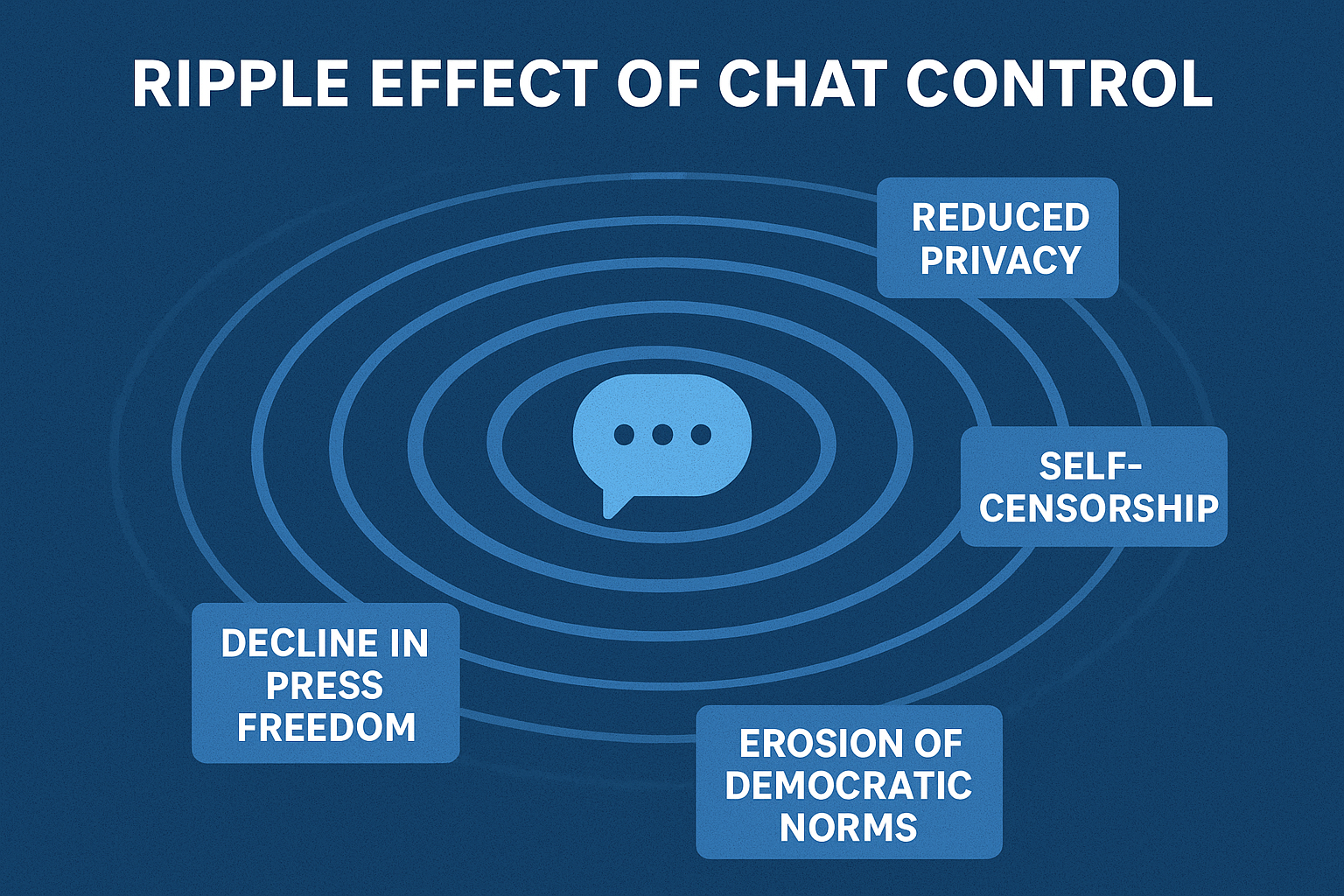Across Europe, a new concept known as chat scanning has entered the public debate. Supporters claim it will protect children from online harm. Chat control is formally part of the Child Sexual Abuse Regulation (CSAR), aimed at combating CSAM (child sexual abuse material). However, many experts, privacy groups, and digital rights advocates warn that it poses a greater risk for everyone who uses a phone, especially young people who message daily.
What is chat scanning?
In simple terms, it is a system that checks your private messages before or as soon as you send them. The app you use would need to scan your texts, photos, or videos and determine whether they seem suspicious. If the scanner thinks something is “unsafe,” it can report the sender, even if the message was completely innocent.
This means the scanning occurs within your phone, not on a server elsewhere. Every typed or uploaded message is checked before it reaches a friend or family member. It is like having a digital security guard watching over your shoulder every time you write something personal.
For digital rights advocates, including the Pirate Party, this raises a serious concern: privacy is not something that can be switched on and off. Once a system is built to monitor everyone’s conversations, it becomes a permanent gateway to surveillance. It does not take much for such tools to be expanded, misused, or accessed by actors who do not have the public’s interest at heart.
Why Chat Control Is a Real Threat
Chat control systems are not theoretical risks. Automated scanners genuinely make mistakes. They often cannot understand teenage slang, humour, or personal images. A tool meant to protect vulnerable users can easily turn into one that falsely accuses innocent people. Meanwhile, determined bad actors can simply switch to apps that do not follow these rules, while ordinary citizens remain under constant monitoring.
This approach also weakens secure communication. End-to-end encryption is designed to protect everyone from hackers, identity theft, and even misuse of state power. Scanning messages before they are encrypted breaks that protection. Instead of keeping society safe, it exposes activists, families, journalists, and children to new dangers.
The Ripple Effect on Democracy
If chat controls become law with a full majority, the long-term consequences could spread slowly but deeply. The ripple effect would impact multiple pillars of democracy.
Privacy Erosion
What begins as limited scanning to target harmful content can gradually expand to include most users. When every message is subject to scrutiny, personal privacy is the first casualty.
Overwhelmed Law Enforcement
A flood of false positives would strain police resources. German experts who reviewed the proposal warned that law enforcement would be unable to handle the volume of inaccurate reports. This waste of time and energy increases the risk of people being wrongly investigated or prosecuted, ultimately making the public less safe.
Chilling of Free Expression
Journalists, activists, and vulnerable groups may start to self-censor because they no longer trust their communication channels. When private conversations feel monitored, open dialogue becomes rare.
Decline in Civic Participation
As trust in institutions weakens, people may disengage from democratic processes. Press freedom declines, and political debate becomes less open.
Shift in Social Norms
Over time, society may begin to accept the idea that monitoring private digital spaces is normal. Such a shift can alter the social contract itself, making surveillance an everyday expectation rather than an exception.
This is how a policy introduced in the name of protection can gradually erode the foundations of democracy.
Are there safer alternatives?
There are better ways to keep communities safe. Targeted investigations, stronger reporting channels, improved child protection services, and investment in digital literacy can genuinely support vulnerable groups without breaking the fundamental right to private communication.
Europe should not accept a future where every phone becomes a checkpoint. Safety should be built on rights, not surveillance. Protecting children and protecting privacy are not opposing goals. With smart policy and responsible technology, the EU can and must do both.


0 comments on “Why Chat Scanning Is a Problem Hiding in Your Phone”